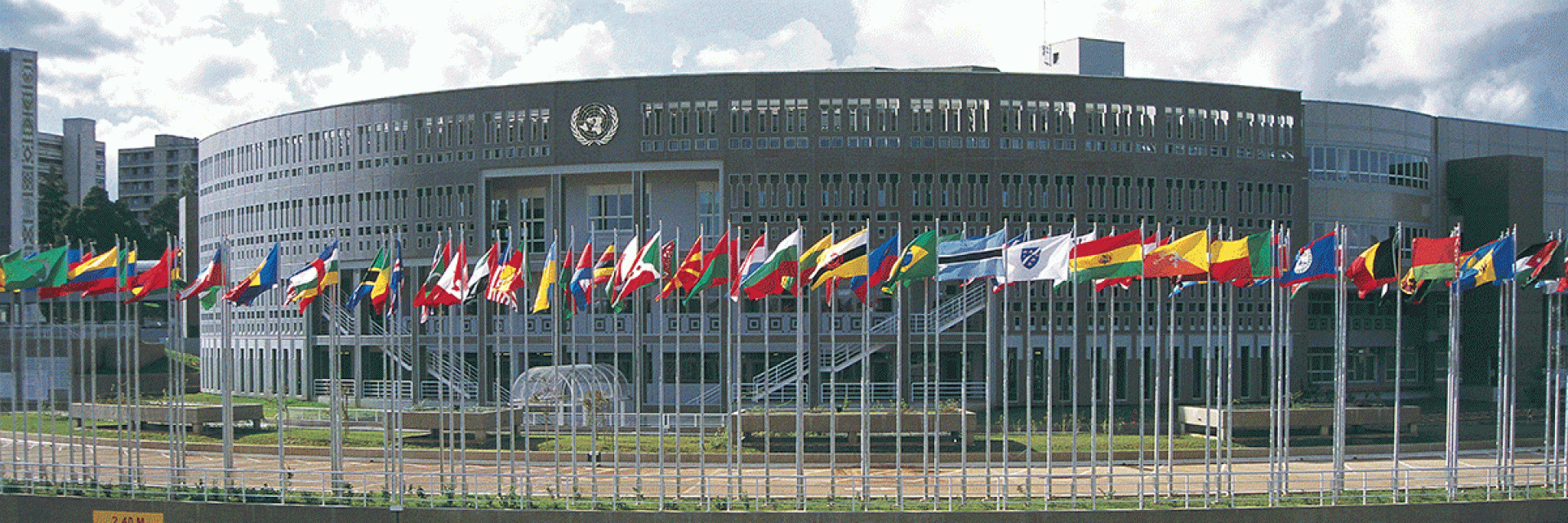Lusaka, Zambia, 29 October 2020 (ECA) - The 26th Meeting of the Inter-Governmental Committee of Senior Officials and Experts (ICSOE) of Southern Africa elected Lesotho as Chair, Malawi as Vice-Chair and South Africa as Rapporteur to lead the Bureau. Delegates and participants from Angola, Botswana, Eswatini, Lesotho, Malawi, Mauritius, Mozambique, Namibia, South Africa, Zambia and Zimbabwe representing Ministries of Agriculture, Commerce, Economic Development, Finance, Foreign Affairs, Industry and Trade, participated in the 26th ICSOE.
The Minister of Finance, Kingdom of Lesotho, Thabo Sofonea, officially opened the ICSOE, noting in his remarks that the new Bureau was assuming responsibilities in a COVID-19 environment which had impacted negatively on socio economic issues in Southern Africa. He said that, although the current response to the pandemic was through emergency health and economic mitigation measures, fiscal consolidation and structural reforms were required to restore external balance, preserve debt sustainability and stimulate inclusive growth over the medium-term.
The Minister emphasized that to this end, the Government of the Kingdom of Lesotho acknowledged the pivotal role the private sector, especially micro, small and medium enterprises played in the recovery process geared towards the attainment of Sustainable Development Goals (SDGs). In line with the theme of the meeting, “Policies and strategies towards effective private sector led growth and job creation in Southern Africa,” Lesotho had over the years placed the private sector at the centre of economic development programmes and strategies in the National Strategic Development Plan (NSDP). On international, continental and regional aspirations, the Hon Minister noted that, "The theme is also consistent with the global and regional development frameworks which include the UN Sustainable Development Goals (SDGs), African Union Agenda 2063, SADC Regional Indicative Strategic Development Plan (RISDP) 2020-2030 and the SADC Vision 2050.”
In his capacity as a Special Guest, the Minister of Finance, Zimbabwe, Mthuli Ncube, noted that the COVID-19 pandemic had forced many countries to swiftly expand social safety nets to protect the vulnerable from the negative impacts of the pandemic. He advised that the Government of Zimbabwe had introduced, a food grant of ZWL$2.4 billion to cater for food needs of at least 1 million vulnerable individuals for a period of eight months. This included 200,000 micro-enterprise owners whose businesses had been disrupted by the lockdown. He further noted that the pandemic had forced the Government to look more seriously at domestic solutions to addressing the requirements to deal with the fallout.
Some of the domestic initiatives include: the launch on 2nd April 2020 of the Domestic and International Humanitarian Appeal for assistance with a budget of US$1.8 billion for COVID-19 support in conjunction with the United Nations; implementation of the Vulnerable Farmers Input Support Programme, which provides free agricultural inputs to its beneficiaries; last but not the least, assistance to Small and Medium Enterprises (SMEs) to quickly resuscitate their businesses and recover from the effects of COVID-19 through the SME Development Corporation, the Women’s Bank, and the Empower Bank to enable them support small businesses to access working capital.
On behalf of the out-going Chair, Eswatini’s Sibonginkhosi Christopher Mavuso, Promotional Officer, Ministry of Commerce, Industry and Trade commended ECA SRO-SA for providing technical assistance to member States on accelerating the domestication of regional industrialization despite the exigencies of the COVID-19 pandemic which reduced physical engagements with member States. He further applauded the Secretariat for facilitating the ICSOE for member States to dialogue on private sector issues, including micro, small and medium enterprises.
Prior to the opening, Mr. Sizo Mhlanga, Director, ECA Sub-Regional Office for Southern Africa (SRO-SA) in his welcoming remarks, noted that the pandemic had affected the capacity of some countries to meet debt-servicing obligations and thus accelerated the onset of debt unsustainability. He noted that the COVID-19 crisis had indeed highlighted the need for accelerating the building of productive capacities and the implementation of national and regional industrialization strategies as well as improving and strengthening the business environment to unleash opportunities for the Southern African private sector in the sub region and the rest of the continent.
While echoing the observations of the adverse impacts of the pandemic on the local economy including on employment, government finances and other socio-economic development parameters, the United Nations Resident Coordinator in the Kingdom of Lesotho, Mr. Salvator Niyonzima, acknowledged the sterling efforts by the Government as well as by the development partners community in addressing the fallout from the pandemic. He assured Delegates of continued technical support to member States from the United Nations Family.
The representative of the COMESA Secretary General, Ms. Providence Mavubi, Director, Industry and Agriculture called for continued strengthening of collaboration amongst member States, Regional Economic Commissions (RECs), and development partners towards ongoing regional efforts to implement inclusive industrialization policies placing the private sector at the citadel of regional economic growth and job creation. She underlined the support provided by both the COMESA industrialization policy, the local content policy and the micro, small and medium enterprises framework in anchoring private sector growth.
The representative of African Union-SARO, Ms. Myranda Lutempo, Senior Policy Officer alluded to the need for all regional activities to be implemented on a continental level to ensure sustainability. Ms. Lutempo advised that the African Union Commission was promoting economic integration and private sector development through several key flagship projects under Agenda 2063. She also acknowledged the “critical role that the micro, small and medium enterprises (MSME) sector played in inclusive economic growth and sustainable job creation”.
The meeting concluded with an outcome document which proffered recommendations and appealed to member States, United Nations and development partners to pull together resources to strengthen the national and regional macroeconomic environment, create a platform for the implementation of the AfCFTA in Southern Africa, enhance the role of the private sector and build back better post-COVID-19.
Issued by:
The Sub-Regional Office for Southern Africa
UN Economic Commission for Africa (ECA)
P.O. Box 30647, Lusaka, Zambia.
Media Contacts:
Ms. Lavender Degre,
Communication Officer,
Tel: +260 211 228502/5 Ext. 21307
DL: +260 211 376607
Email: lavender.degre@un.org

